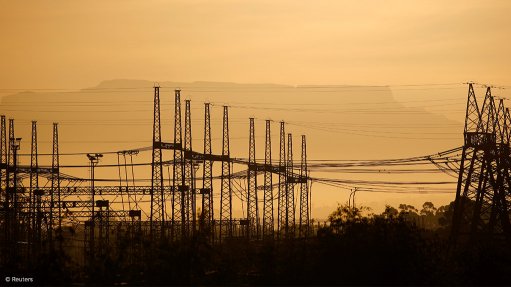
Photo by: Reuters
The energy crisis on the African continent was an opportunity to leapfrog into a new era of power generation, according to Michael Mabuyakhulu, the KwaZulu-Natal MEC for economic development and tourism.
Mabuyakhulu said reports indicated that demand for modern energy was set to surge, fuelled by economic growth, demographic change and urbanisation.
“To our advantage, and as the costs of low-carbon energy fall, Africa could leapfrog into a new era of power generation,” he said.
Utility reform, new technologies and new business models could be as transformative in energy as the mobile phone had been in telecommunications said Mabuyakhulu, speaking at the fifth annual waste management summit in uMhlanga on Tuesday to about 500 delegates.
He said that a 2015 Africa Progress Report noted that sustainable development imperatives, the shifting economic pendulum and climate change were swinging the spotlight, not only onto Africa’s needs to accelerate development and adapt to global warming, but also onto the continent’s urgent energy crisis.
The report noted that two in three Africans – around 621-million in total – had no access to electricity at all.
Viewed from an investment perspective, replacing existing fuels with modern waste-based energy forms represented a widely neglected market opportunity. Access to modern energy systems could cut household costs with benefits for expenditure and investment in other areas.
Just halving costs would save $5-billion for people living below $2.50, or $36 per household. Such an approach to new energy production would add about 55 billion US dollars to the continent per year, he said.
Referring to a report released by the Global Entrepreneur Monitor this year, Mabuyakhulu said the percentage of South Africans involved in entrepreneurial activity had decreased by 34% since 2014.
He said that one of the constantly cited reasons for this failure was a lack of exposure to initiatives supporting entrepreneurship. “This is an anomaly that we cannot afford to leave uncorrected,” he said.
He said that the three-day waste summit would look to strike an equilibrium between effective waste management and enterprise development.
“When more people are exposed to recycling as an environmentally friendly waste management solution and the economic spin-offs of this form of waste disposal, we could, in fact, begin to see the burgeoning of more green start-ups and cooperatives in the province and the country.”
Guests at the summit included minister of environmental affairs, Edna Molewa, former UN high commissioner, Dr Navi Pillay, stakeholders from academic and private sectors. David van Rooyen, the minister of Cooperative Governance and Traditional affairs was set to attend but was not available.